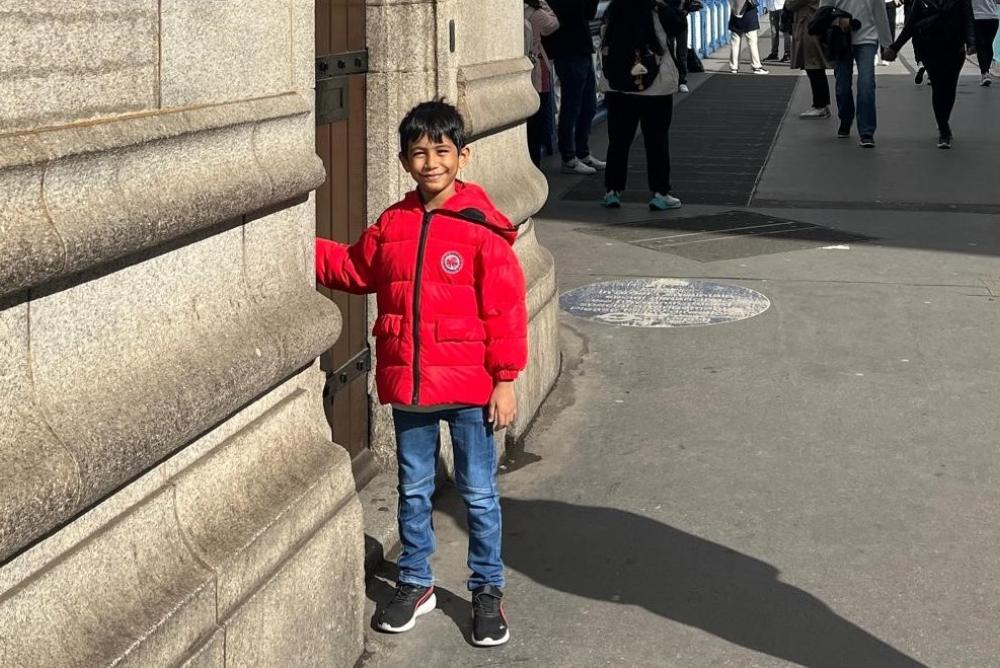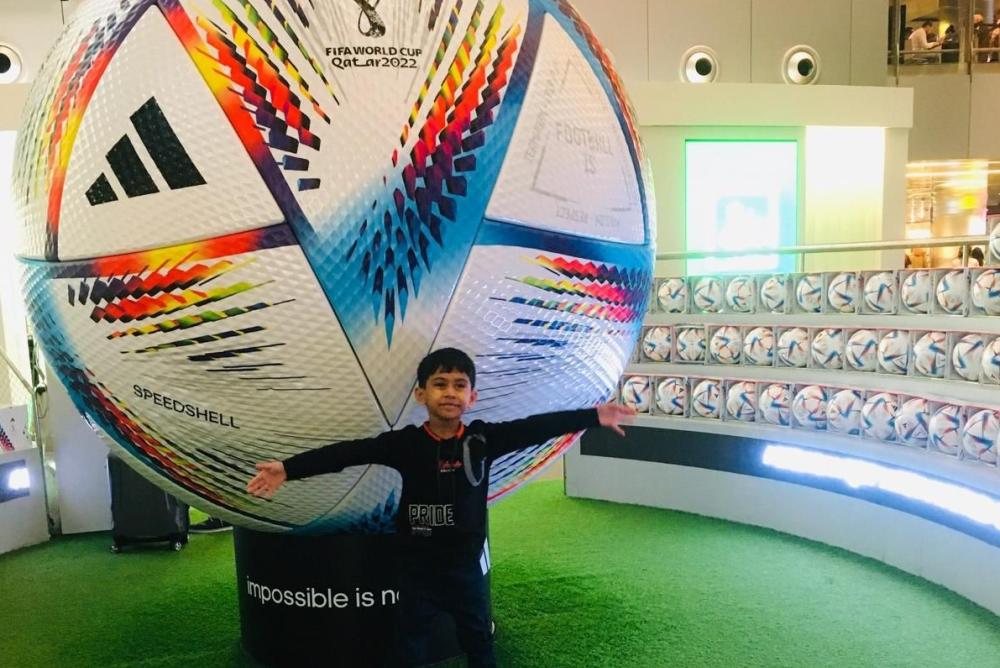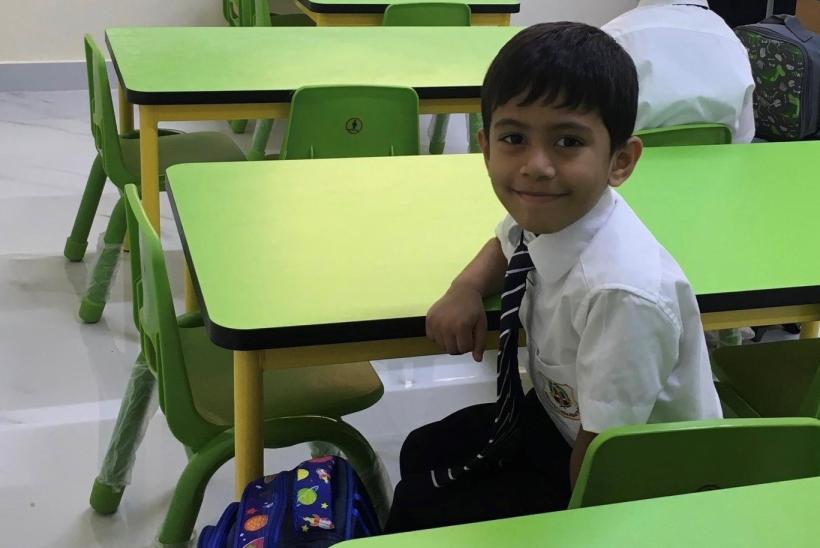Gulf child one of the first in the world to receive new gene therapy treatment to help live to the fullest
A child living in Qatar has been one of the first in the world to receive a new life-changing treatment at Great Ormond Street Hospital for Children, London, UK. The cutting-edge new treatment is for children with a rare immunodeficiency that leaves them unable to fight infections. Without treatment children rarely live beyond two years old.
Researchers from Great Ormond Street Hospital (GOSH), University College London (UCL), Hospital Infantil Universitario Niño Jesús, Madrid (Spain) and University of California, Los Angeles (UCLA) have demonstrated successful clinical trial results from this new therapy published today in the New England Journal of Medicine.
Great Ormond Street Hospital for Children NHS Foundation Trust is a global centre of excellence for gene therapies for children with rare diseases. The hospital has it’s own unit for international and private patients which delivers specialist therapies for children which are often not available anywhere else in the world. The international unit at GOSH is recognised as one of the few world-class hospitals for international patients with rare, complex or multiple conditions. The hospital has been delivering gene therapies for nearly 25 years, saving hundreds of children’s lives.
This research tested whether a new gene therapy for the rare primary immunodeficiency, leukocyte adhesion deficiency 1 (LAD-1), was effective. This illness means children do not have a functioning immune system and are constantly struggling to fight infections and cannot live a normal life.
The disease is caused by genetic variants in the gene responsible for CD18. CD18 is a protein on the surface of white blood cells that allows them to get out of the blood stream and to the site of an infection. In heathy people, once white blood cells reach a site of infection, they can tackle it without much concern, but for children with LAD-1, the faulty white blood cells can’t get to where they are needed, leaving the children vulnerable to frequent and escalating infections.
The current standard treatment is a bone marrow transplant to provide stem cells from a donor with the correct genetic code to create white blood cells that have CD18. This requires a matching donor and, even if successful, has some serious and life-threatening potential side effects like rejection of donor cells and graft-versus-host-disease, where the donated cells attack the recipient’s body.
In this new gene therapy, sponsored by Rocket Pharmaceuticals Inc., clinicians take the patient’s own stem cells and modify them with a gene therapy that instructs the cells to create the missing protein needed to get out of the blood stream and fight infection. The ‘upgraded’ cells are then returned to the patients where they can start to develop a working immune system. This new gene therapy uses the patient’s own cells so there is no risk of rejection or graft-versus-host disease.
The study reports two-year outcomes for nine patients aged five months to nine years who received the therapy across three clinical trial sites: UCLA Mattel Children’s Hospital, Hospital Infantil Universitario Niño Jesús in Madrid and GOSH.

Yahyaa’s Story
Yahyaa was one of the first patients to received the therapy for LAD-I at GOSH, now just over 7 years old. Diagnosed at age 1, his life was extremely difficult, spending most of his days in hospital, battling frequent and severe infections.
‘’He endured significant physical and emotional distress, suffering from various illnesses that made it challenging to visit public places or even relatives' homes. He was unable to attend school, participate in sports, or engage in other academic activities. One of the contributing factors was his continuous dependence on antibiotics, administered through a catheter, which further restricted his ability to lead a normal life.”, said Yahyaa’s father, Ahamed.
When doctors in Qatar proposed they travel to London for a treatment that could change their son’s life, Yahyaa’s parents accepted the offer from GOSH. They arrived during the height of the COVID-19 pandemic which meant not only did they have to contend with the complexities of their son’s case, but also navigate the travel restrictions imposed by the pandemic.
‘’The doctors, their teams, and the other staff members were exceptionally kind and compassionate. They guided us thoroughly and provided the best possible treatment and care for our child” shared Ahamed.
The treatment changed Yahyaa’s life. He is no longer held back by his condition nor defined by his diagnosis. Ahamed said: ‘’He engages in activities with enthusiasm, and his progress makes us feel that he is thriving just like any other child.’’
Equipped with a renewed thirst for life, he now not only engages in outdoor activities like playing football but says he is looking forward to a future where he could even be a professional footballer.

Clinical trial offering hope
All nine children treated in this trial have reacted well to treatment and, after one to two years of treatment are all surviving with fewer symptoms. Their skin and dental lesions, infections and inflammatory symptoms have resolved, and the children have been able to resume a life like their peers.
After treatment, all children in the trial had their blood analysed and were found to have the CD18 protein that they need to fight infections in the long term, allowing them to stop taking other medications.
Looking to the future
The study was small because the condition is so rare, but researchers are continuing to follow patients to explore the long-term effects of the treatment and be sure no adverse side effects appear.
Professor Claire Booth, Mahboubian Professor in Gene Therapy and Paediatric Immunology (UCL) and Consultant Paediatric Immunologist at GOSH agreed saying:
“We are thrilled for Yahyaa and all the children on this trial but also because this success has far-reaching implications, beyond LAD-1. As this process has been shown to be successful for such a complex disease, we could move towards a blueprint to treat many other diseases. Gene therapy is being explored by teams at GOSH and our partners for blinding condition, muscular dystrophies, cancer and others – the possibilities are really far reaching.
“Families like Yahyaa’s put their faith in us, in the research to offer them a chance. It’s a long, often uncertain journey with difficult decisions but the way families approach these trials is something to be celebrated and applauded.”
Dr Julian Sevilla, Section Chief of the Pediatric Hematology and Oncology Department and the Transplant and Cellular Therapies Unit of the Hospital Infantil Universitario Niño Jesús said “this trial demonstrates once again how gene therapy can cure diseases that would otherwise be incurable without adequate stem cell donors, with shorter hospital stays and fewer adverse side effects.”


